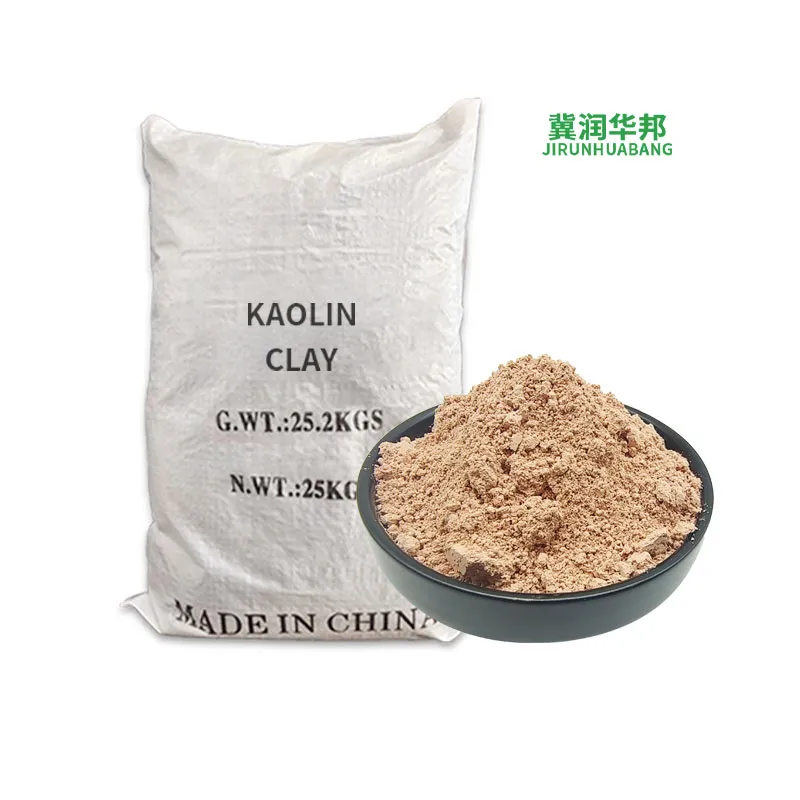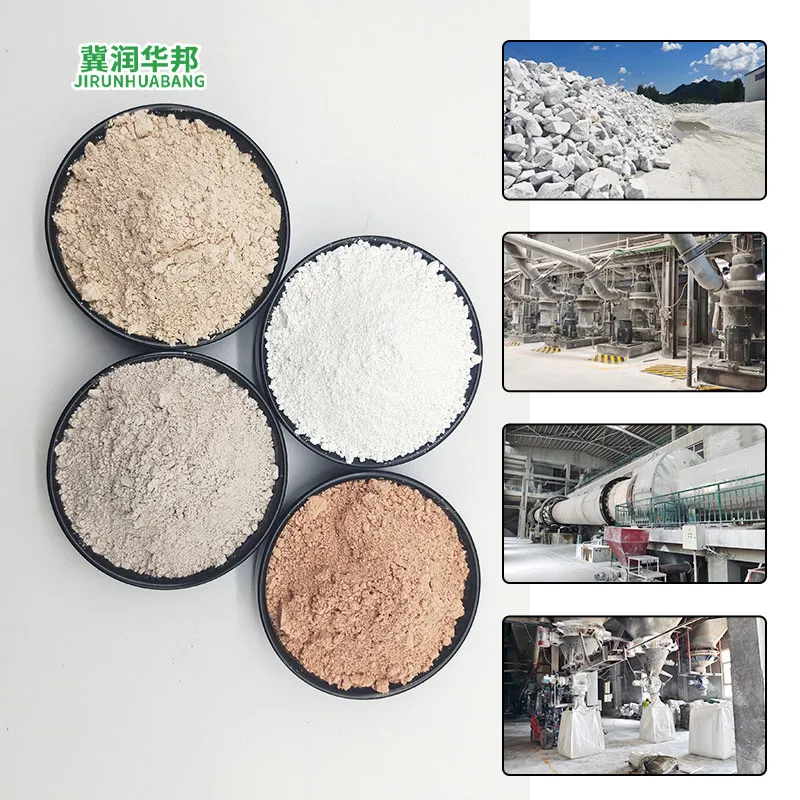Power of Kaolin Clay Wholesale
Back to list
The global demand for natural and sustainable raw materials has made kaolin clay wholesale a booming sector. From cosmetic formulations to ceramics, kaolin clay wholesale offers businesses cost-effective, scalable access to one of the most versatile natural minerals in the world. Known for its softness, chemical stability, and high absorbency, kaolin is in constant demand across multiple industries.
Kaolin clay wholesale supplies typically originate from deposits rich in kaolinite—a hydrated aluminum silicate mineral known for its silky texture and gentle effectiveness. For large-scale buyers, purchasing in bulk translates into considerable savings, predictable supply chains, and customized specifications. Whether you're a manufacturer of skin care products, paints, or porcelain, reliable kaolin clay wholesale access ensures smooth production flow and competitive pricing.
Global suppliers are now offering improved logistics, packaging solutions, and technical support, ensuring that businesses sourcing kaolin clay wholesale can align product quality with sustainability, traceability, and innovation. As markets expand and end-user expectations grow, kaolin’s role becomes increasingly vital—not just as a raw material, but as a performance booster in finished goods.

The Multifaceted Uses and Benefits of Kaolin Clay
Revered for centuries, kaolin clay continues to prove its relevance in modern applications, both industrial and personal care-related. This naturally occurring mineral is prized for its mildness, fine particle size, and chemical inertness, making kaolin clay suitable for delicate processes and sensitive applications.
In the cosmetics industry, kaolin clay is a staple in facial masks, soaps, and powders due to its oil-absorbing and purifying qualities. It gently detoxifies the skin without causing irritation, which makes it ideal for sensitive skin types. Skincare brands around the world rely on kaolin clay as a safe, effective alternative to synthetic cleansers.
Beyond beauty, kaolin clay is extensively used in paper production, where it acts as a coating agent to enhance smoothness, brightness, and printability. In paints and coatings, it functions as a pigment extender and gloss enhancer. In the rubber and plastics industry, kaolin clay improves mechanical strength and resistance to abrasions.
Its thermal stability makes it indispensable in ceramics and porcelain manufacturing. Electrical insulators, sanitary ware, and tiles owe their strength and finish to refined kaolin clay compositions. With such diverse applications, kaolin clay is not just a functional filler but an enabler of performance and product quality across sectors.
Why China Clay Powder Dominates the Mineral Market
A specific type of kaolin that stands out globally is china clay powder, named for its historic use in fine porcelain production. Mined predominantly in China and India, china clay powder has become a staple in industries that demand high purity and whiteness.
This ultra-refined mineral boasts low iron content and a fine, white appearance, making china clay powder highly sought after in the ceramic, glass, and paper industries. In the production of porcelain, it's the primary raw material, offering moldability, durability, and the signature translucent finish that defines high-end ceramics.
China clay powder is also favored in pharmaceuticals as an excipient and in agrochemicals as a carrier for pesticides and herbicides. In paints, its whiteness and opacity enhance coverage, while its chemical inertness ensures compatibility with most resins and binders.
Because it’s derived from natural deposits with minimal chemical alteration, china clay powder aligns with eco-friendly manufacturing practices. Leading producers ensure that it meets strict environmental and safety standards, often undergoing advanced washing, screening, and bleaching techniques before being distributed in bulk.
Clean Beauty’s Secret Ingredient: Organic White Clay
As the clean beauty movement gains momentum, organic white clay has become a key ingredient in products that prioritize safety, purity, and natural origins. Often used interchangeably with kaolin, organic white clay is typically harvested from uncontaminated sources and processed without synthetic additives.
This commitment to natural sourcing enhances organic white clay’s appeal among eco-conscious consumers. It's celebrated for its ability to detoxify skin, minimize pores, reduce inflammation, and gently exfoliate. Found in facial masks, scrubs, shampoos, and deodorants, organic white clay provides both sensory appeal and dermatological benefits.
Beyond personal care, organic white clay is emerging in wellness-focused applications like toothpaste, feminine hygiene products, and even edible detox formulas. Its antimicrobial and adsorptive properties are being studied for holistic health use, broadening the horizons for clay-based innovation.
Manufacturers sourcing organic white clay prioritize traceability and certifications such as COSMOS, USDA Organic, or Ecocert. This ensures alignment with green product claims and transparent labelling, which increasingly influence consumer trust and purchasing decisions.
Whether it’s being used to draw out impurities from skin or enhance the whiteness of a facial cleanser, organic white clay is proving to be a timeless and transformative ingredient in the beauty and health world.
Finding the Right Supplier for Kaolin Clay Wholesale Success
Choosing the right supplier is crucial for businesses looking to harness the full potential of kaolin clay wholesale. From ensuring consistent particle size distribution to meeting international safety and purity standards, a good supplier goes beyond just providing clay—they become a strategic partner in your product's success.
Top-tier kaolin clay wholesale suppliers offer technical support, customizable grades, and quality control systems that match your industry’s specific requirements. Some specialize in ultrafine grades for cosmetics, while others focus on calcined versions for ceramics and refractory uses.
Reliable suppliers also invest in sustainable mining and eco-conscious processing. This not only ensures compliance with environmental standards but supports a cleaner, greener brand image for the businesses that use their materials. Digital traceability, third-party lab testing, and carbon-neutral logistics are now becoming standard offerings.
Global buyers should also assess the supplier’s logistical capabilities—shipping efficiency, lead times, and warehousing. Those purchasing kaolin clay wholesale from overseas should prioritize companies with proven experience in bulk export, customs handling, and compliance with REACH, FDA, or ISO certifications.
A smart sourcing strategy doesn’t just reduce costs—it enhances your product’s integrity, customer satisfaction, and long-term viability in competitive markets.

Kaolin Clay FAQs
What makes kaolin clay different from other types of clay?
Kaolin clay is composed primarily of kaolinite, which gives it a fine texture, light color, and chemical inertness. Unlike bentonite or montmorillonite, kaolin has low swelling capacity and a pH closer to neutral, making it ideal for sensitive applications like skincare and ceramics.
Can I use organic white clay on all skin types?
Yes, organic white clay is extremely gentle and is often recommended for all skin types, including sensitive, dry, and mature skin. It doesn’t strip away natural oils or cause irritation, which makes it suitable for frequent use in face masks, scrubs, and cleansers.
How does china clay powder improve ceramics and porcelain products?
China clay powder offers exceptional plasticity and whiteness, essential for forming fine ceramic structures. Its low impurity content ensures even firing, reduced porosity, and a smooth, glass-like finish, which are critical for high-quality porcelain and sanitary ware.
Why should manufacturers opt for kaolin clay wholesale?
Buying kaolin clay wholesale reduces cost per unit, ensures supply chain stability, and allows customization of clay properties such as granularity, brightness, and moisture content. It’s ideal for businesses scaling operations or standardizing production across multiple product lines.
What certifications should I look for when sourcing kaolin clay?
Look for ISO certifications, FDA compliance (for food-grade applications), REACH registration, and third-party lab test reports. For organic white clay, certifications like COSMOS, Ecocert, or USDA Organic verify that the material meets stringent environmental and purity standards.
